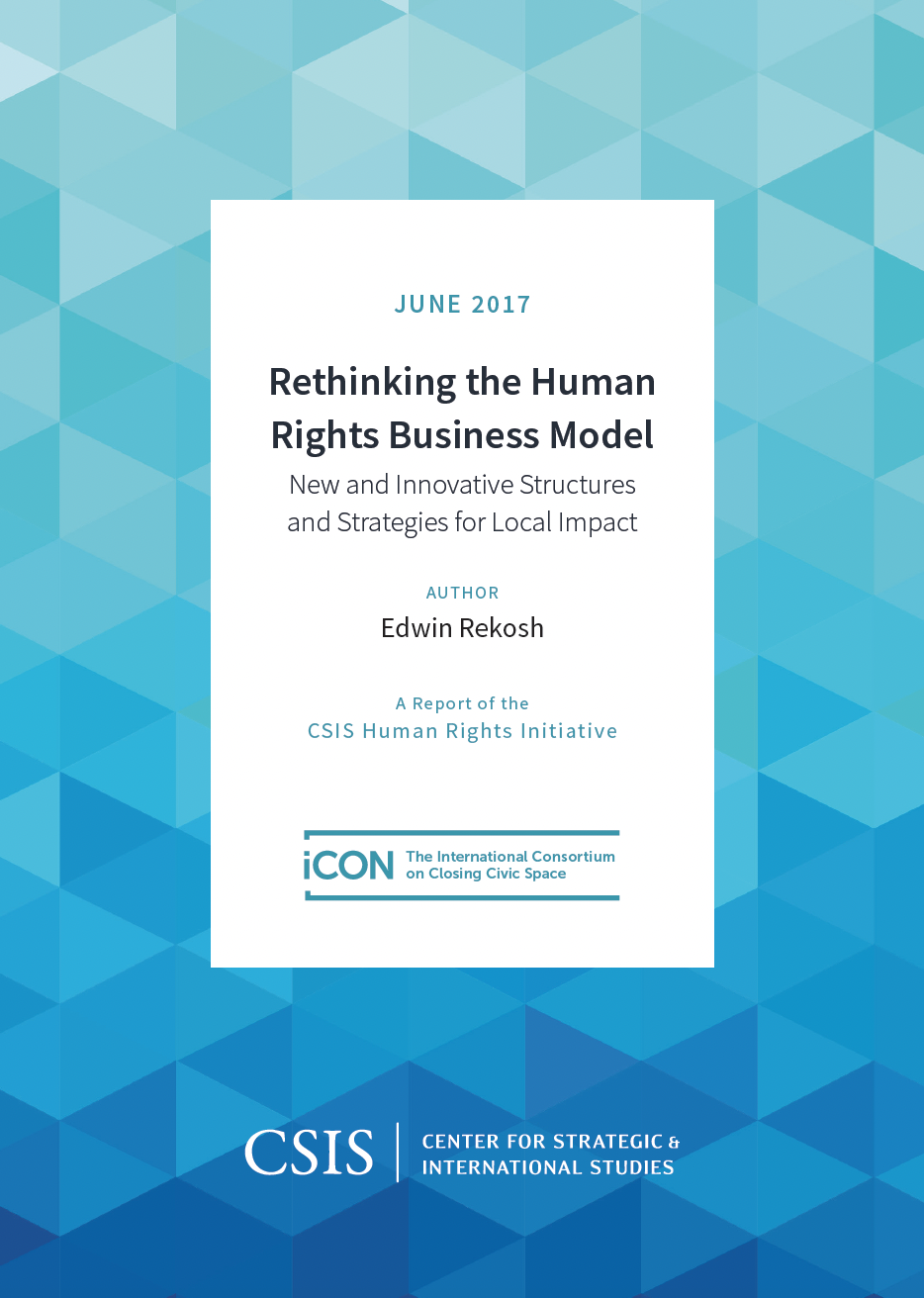This report, authored by Edwin Rekosh and published by Center for Strategic and International Studies, investigates opportunities to diversify and broaden support (financial and otherwise) for nongovernmental approaches to realizing human rights. Such analysis is essential in light of global trends, including the relative scarcity of human rights charitable funding from local sources and increasing governmental efforts to restrict the foreign flow of funds to nongovernmental organizations (NGOs). The author argues for applying the concept of “business models” to human rights NGOs in order to organize thinking on areas for potential innovation according to function rather than form. He uses a business model framework for exploring examples of innovative thinking according to the following categories: (1) revenue streams; (2) key partners and resources; (3) “customer” (i.e., beneficiary or stakeholder) relationships and channels; and (4) cost structure. The report highlights innovative strategies that NGOs and others can pursue and structures they can adopt to pursue them, with a view to enhancing their impact, sustainability, and resilience.
The full report can be downloaded from the CSIS website.
Photo: Sanjay Kanojia/AFP/Getty Images

